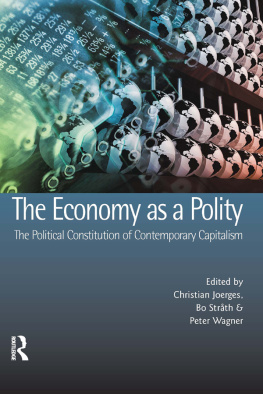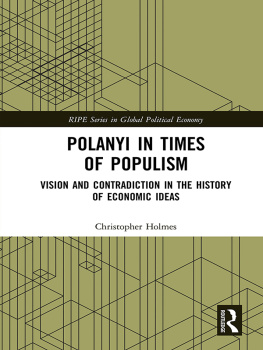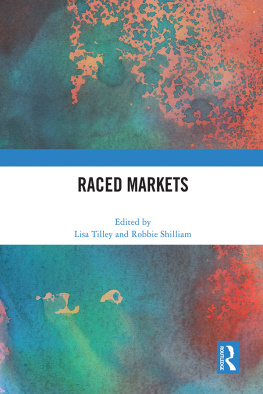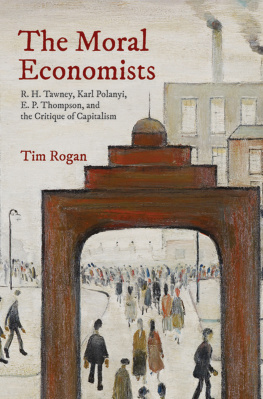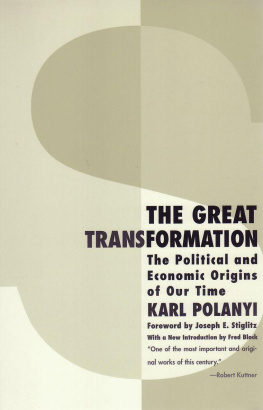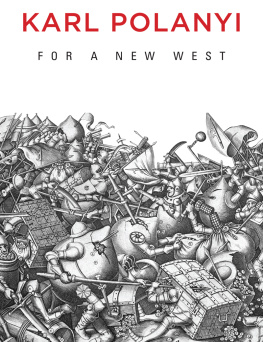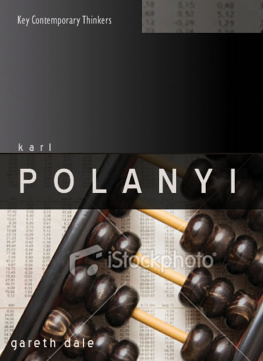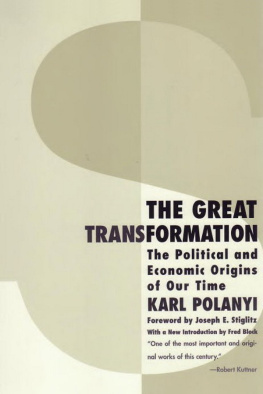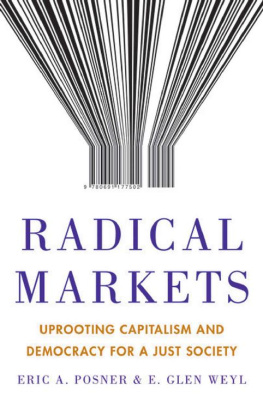First published 2005 by UCL Press
Published 2017 by Routledge
2 Park Square, Milton Park, Abingdon, Oxon 0X14 4RN
711 Third Avenue, New York, NY 10017, USA
Routledge is an imprint of the Taylor & Francis Group, an informa business
Copyright 2005 by Taylor & Francis
All rights reserved. No part of this book may be reprinted or reproduced or utilised in any form or by any electronic, mechanical, or other means, now known or hereafter invented, including photocopying and recording, or in any information storage or retrieval system, without permission in writing from the publishers.
Notice:
Product or corporate names may be trademarks or registered trademarks, and are used only for identification and explanation without intent to infringe.
You must not circulate this book in any other binding or cover and you must impose the same condition on any acquirer.
British Library Cataloguing in Publication Data
The economy as a polity: the political constitution of contemporary capitalisation
1 Capitalism 2 Globalization Economic aspects 3 Monetary policy
I Joerges, Christian II Strth, Bo, 1943- III Wagner, Peter, 1956330.112
Library of Congress Cataloguing in Publication Data
Data available
ISBN 13: 978-1-84472-069-9 (pbk)
ISBN 13: 978-1-84472-070-5 (hbk)
This book is the result of research pursued at the European University Institute (EUI) from 2001 to 2004 in the framework of the working group The economy as a polity, established and convened by the editors. Most of the contributors to the volume participated in the weekly working group meetings during the academic year 200203. Before and after this intense phase of work, seminars and workshops were held with numerous other speakers Eve Chiapello, Marcello de Cecco, Peter Hall, Robert Salais, David Soskice, Laurent Thevenot among others whom we would like to thank for their contributions to the intellectual milieu in which the analyses presented in this volume could flourish. Thanks are also due to Angelos Mouzakitis and Vasia Tsakiri for help with editing the contributions. Financial support from the Jean Monnet Fellowships at the Robert Schuman Centre for Advanced Studies made the stays of some contributors at EUI possible; support for organising the workshop and seminar series was provided by the EUI Research Council. Sometimes we were made to feel that we were seen as straying too far away from the disciplinary core of law, history, sociology, political science and economics or from any direct usefulness of our thoughts for policy-making. Overall, however, EUI has provided a very conducive environment for our multi-disciplinary work, and we would like to express our thanks to all those who made this possible.
San Domenico di Fiesole
November 2004
David M Andrews is Associate Professor in the Department of Politics at Scripps College, adjunct professor at the Claremont Graduate University, and founding Director of the European Union Center of California. His research focuses on Atlantic political and economic relations and on international monetary affairs.
Johann P Arnason is Professor Emeritus of Sociology in the School of Social Sciences at La Trobe University and currently a Visiting Professor of Sociology at the University of Leipzig. His research focuses on questions of social theory, theories of modernity, and the comparative study of civilisations. His most recent book is Civilizations in Dispute (2003).
Fred Block is Professor of Sociology at the University of California, Davis, and member of the Board of the Karl Polanyi Institute of Political Economy. His numerous publications include The Vampire State and Other Myths and Fallacies About the US Economy (1996) and Postindustrial Possibilities: A Critique of Economic Discourse (1990).
Giuseppe Bronzini is a judge at the Court of Appeals of Rome. Author of numerous essays in political theory and European and labour law, he is editor of the journal Rivista Critica di Diritto del Lavoro. Most recently, he has edited Europa, Costituzione, Movimenti Sociali (2003) and authored the book I Diritti del Popolo-mondo (2004).
Pepper D Culpepper is Associate Professor of Public Policy in the John F Kennedy School of Government at Harvard University. His research focuses on the role of employers in politics and on the politics of institutional change in the advanced industrial democracies, particularly in Europe. His publications include Creating Cooperation (2003) and The German Skills Machine (co-ed, 1999).
Michelle Everson is Jean Monnet Lecturer in European Law at Birkbeck College, University of London. She has researched widely in the field of European law and has particular interests in the areas of European regulatory law, European administrative and constitutional law and European citizenship.
Maria Gomez Garrido is a researcher in the Department of Social and Political Sciences of the European University Institute. Her work focuses on changing conceptions of work and unemployment in Europe from the late 19th century to the present.
Christian Joerges is Professor of Economic Law in the Department of Law of the European University Institute and currently works on issues of transnational and European governance, risk regulation and standardisation, and the history of concepts of integration.
Feriel Kandil, economist and philosopher at the research group Institutionset Dynamiques Historiques de lEconomie (IDHE) at the Ecole normale superieure de Cachan, has published numerous articles on the philosophy and economy of the welfare state in Europe.
Peter Lindseth is Associate Professor of Law in the School of Law at the University of Connecticut. His research focuses on the historical evolution of the administrative state in the 20th century as well as the relationship of administrative governance to the process of European integration.
Bo Strth is Professor of Contemporary History in the Department of History and Civilization of the European University Institute, where he has directed the research programme The modernity of Europe: towards a comparative-historical and politico-philosophical re-assessment, together with Peter Wagner.
Peter Wagner is Professor of Social and Political Theory in the Department of Social and Political Sciences of the European University Institute, where he has directed the research programme The modernity of Europe: towards a comparative-historical and politico-philosophical re-assessment, together with Bo Strth.
TABLE OF CONTENTS
Peter Wagner
PART I
THE ANALYSIS OF CAPITALISM: WORK AT THEORETICAL RETRIEVAL
Fred Block
Johann P Amazon
Peter Wagner
PART II
MONEY, WORK, PUBLIC POLICY AND ADMINISTRATION: CONTEMPORARY CAPITALISM AND ITS HISTORICAL TRANSFORMATIONS
Bo Strth
David M Andrews
Mara Gmez Garrido
Peter Lindseth
Pepper D Culpepper
Christian Joerges and Michelle Everson
PART III
RE-EMBEDDING CAPITALISM: TWO PERSPECTIVES
Giuseppe Bronzini
FerielKandil
Peter Wagner
The debate about so-called economic globalisation has reached a new phase. For some time during the 1990s even critics had been convinced that neo-liberal thinking had achieved such a hegemony that nothing stood in the way of the further dismantling of all kinds of barriers to trade and of the creation of an effective world-market for all commodities, including labour and capital themselves. In the meantime, however, both the increased and increasingly effective resistance to the social consequences of neo-liberal market-making rising inequality and insecurity throughout the world and the visibly dysfunctional effects of lack of regulation currency and stock market crashes, among others have changed the politico-intellectual climate, even among economists and market-oriented policy-makers. It seems as if a new round in the debate about the respective roles of states and markets has been inaugurated. The story about the rise and fall of market society, which was first told in these terms by Karl Polanyi (1984 [1944]

